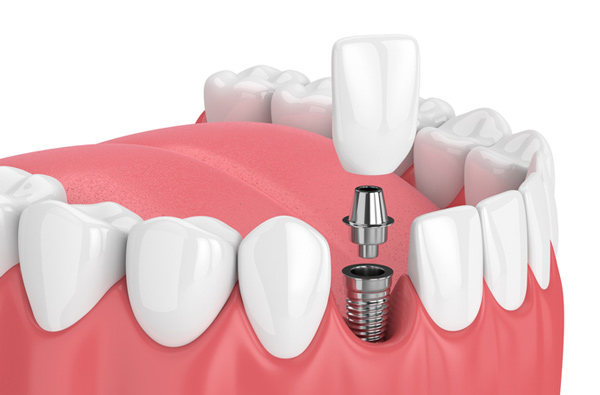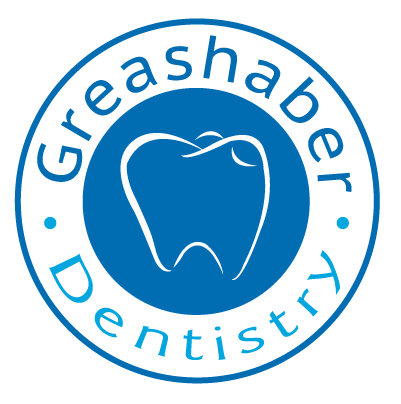 Within the realm of modern dentistry, dental implants stand out as a transformative solution for individuals dealing with tooth loss. These tiny marvels, often made of titanium, have the power to restore not just smiles but also confidence, functionality, and overall oral health. If you're experiencing tooth loss and looking to restore your dental health, look no further than dental implants.
Within the realm of modern dentistry, dental implants stand out as a transformative solution for individuals dealing with tooth loss. These tiny marvels, often made of titanium, have the power to restore not just smiles but also confidence, functionality, and overall oral health. If you're experiencing tooth loss and looking to restore your dental health, look no further than dental implants.Implants resemble surrounding teeth to such a degree that onlookers won't know you have a prosthetic tooth unless you tell them. Patients themselves often forget which tooth is supported by the implant, which allows them to smile, laugh, and even enjoy challenging foods like corn on the cob, apples, and ribs.
Ready to transform your smile? Schedule your consultation for dental implants today at Greashaber Dentistry!
What are Dental Implants?
Dental implants, crafted from titanium, are specialized inserts that integrate into the jaw bone. They offer support for a single tooth or an entire dental arch of missing teeth, as seen in the All-on-4 treatment concept. Functionality and aesthetics lost due to missing teeth are restored by dental implants, providing a natural look, feel, and function.
Dental implant restorations typically comprise three elements:
| • | The implant, a titanium screw fused to the jaw bone, which serves as the anchor for the prosthetic tooth |
| • | The abutment, which connects the implant to the prosthetic tooth |
| • | The crown or prosthesis, attached to the implant via the abutment, which mimics natural tooth function and matches the remaining teeth in shape and color |
Dental implants are more than just prosthetic teeth. They are sophisticated, bio-compatible structures designed to mimic the natural tooth root. Most implants are made from titanium or another biocompatible metal. Such materials possess the unique ability to fuse with the jaw bone through a process called osseointegration. As the bone bonds with the titanium implant, a sturdy foundation is created, ensuring stability and durability for the artificial tooth or teeth that we will attach.
Types of Dental Implants
Endosteal implants, the most common type, are surgically placed directly into the jaw bone. These titanium implants provide a robust base for crowns, bridges, or dentures. The secure integration with the jaw bone ensures a stable and natural feel, making them a popular choice for various dental restorations.
Subperiosteal implants are positioned on or above the jaw bone, beneath the gum tissue. Ideal for individuals with limited bone mass, these implants use a metal framework to support the prosthetic teeth. While less common, subperiosteal implants offer an alternative for those seeking replacement teeth but who might qualify as suitable candidates for traditional endosteal implants.
The Dental Implant Procedure
The procedure for dental implants can vary, but it usually begins with a thorough examination and consultation. During this initial phase, Dr. Greashaber will assess the patient's overall oral health, discuss medical history, and explore the feasibility of dental implants. This personalized approach ensures that the treatment plan aligns with the unique needs and circumstances of each individual.
The next step involves the surgical placement of a titanium implant into the jaw bone. This tiny but mighty titanium screw serves as an artificial tooth root, anchoring itself securely into the jaw. A healing period will follow. The osseointegration process will occur over subsequent weeks or months.
Once osseointegration is successfully completed, the next phase involves the attachment of an abutment to the implant. This connecting piece protrudes above the gum line and serves as the intermediary link between the implant and the prosthetic tooth. Impressions are then taken to create a custom-made crown, bridge, or denture that perfectly matches the patient's natural teeth in both form and color.
The final stage of the dental implant procedure involves affixing the prosthetic tooth to the abutment. This is the transformative moment when the patient witnesses the culmination of the meticulous process, as the prosthetic tooth seamlessly integrates with the natural dental landscape. The result is a restoration that not only looks natural but also feels and functions like real teeth.

Benefits of Dental Implants
When faced with permanent tooth loss, options like tooth-supported bridges and traditional dentures are available. However, these lack the long-term benefits offered by dental implants.
For example, dentures rest on the surface of the gums and don't penetrate the jaw bone, so patients with dentures will experience deterioration of the jaw bone over time. This does not happen with dental implants, which stimulate the jaw bone to keep it healthy.
Dental implants provide the most natural tooth replacement, mitigating many oral health problems associated with permanent tooth loss. Other options may harm supporting teeth or cause discomfort and inefficiency in chewing, biting, and talking. They can also contribute to jaw bone loss and damage natural dentition.
By contrast, dental implants are a self-supporting and long-lasting option for preserving jaw bone, teeth, and overall oral health alike. Dental implants are self-supporting, eliminating the stress placed on neighboring teeth, as seen with tooth-supported bridges. The durability of dental implants often outlasts other tooth replacement options, potentially lasting a lifetime with proper care.
While the physical benefits of dental implants are evident, their impact on psychological and emotional well-being is equally profound. Tooth loss can often lead to a loss of confidence and self-esteem. Dental implants, by restoring a natural-looking and functional smile, empower individuals to regain their self-assurance and embrace social interactions with renewed vigor. Prosthetic teeth with visible parts might not have this effect.
Some patients are worried about the cost of replacing missing teeth. While the initial cost of dental implants may seem higher than traditional alternatives, their long-term benefits make them a cost-effective investment. Unlike dentures or bridges, dental implants offer durability and stability, reducing the need for frequent replacements or adjustments. This longevity, coupled with the improved quality of life they provide, makes dental implants a wise and sustainable choice for many patients.
Schedule An Appointment
If you're considering dental implants, Greashaber Dentistry can help you get the smile you need for a healthier, more confident, and fulfilling life. Our team of skilled oral surgeons is trained to provide you will the replacement teeth you deserve. If you'd like to schedule a consultation, please call us at (734) 519-7978.
